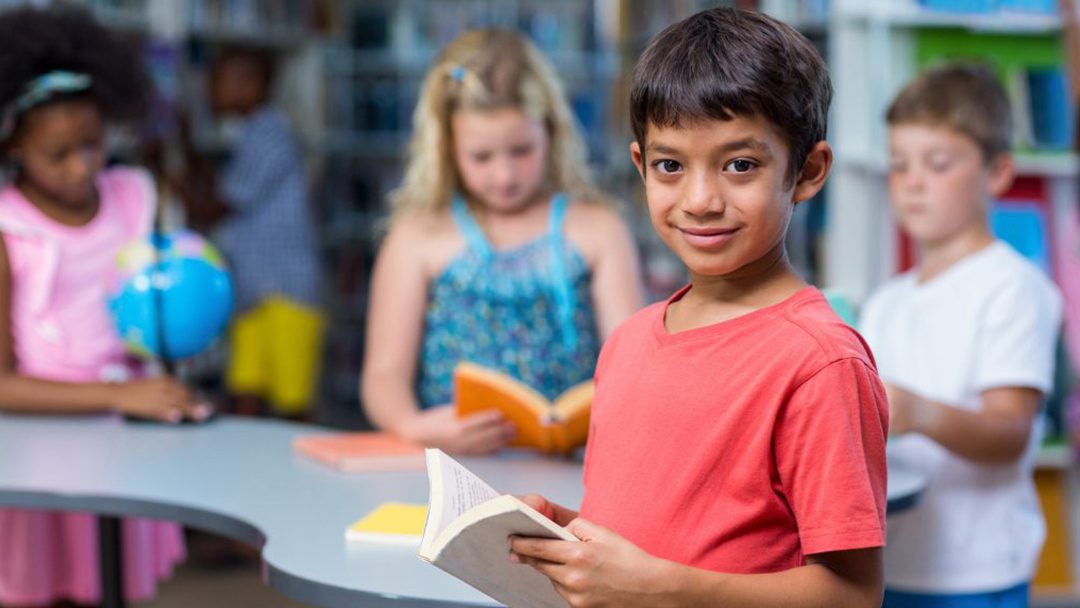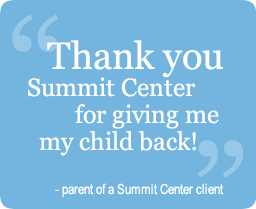By Dr. Lisa White, Summit Center
Are you wondering whether public school, private school, or homeschooling might be the best option for your child who is gifted, 2e, or has learning challenges? There are a lot of things to consider when making that choice.
Many families choose to stick with their local public schools. These schools are required by law to provide services and accommodations through IEPs (Individual Education Plans) or 504 Plans; these can range from pull-out reading or math support to extra time on tests to counseling services to allowing a child to use a phone to take pictures of notes on the board so they don’t have to copy them. Public schools are free and might even be in the neighborhood. However, teachers may not be able to differentiate the curriculum for students who need advanced learning or for those with special needs.
Homeschooling is at the other end of the spectrum. Families who homeschool choose their own curriculum and methods of teaching. These families are frequently not “at home” – they can often be found taking classes at the local science museum, at a park day with other homeschoolers, or taking music or parkour lessons, all as a part of the school day. For gifted kids or those with learning challenges, homeschooling offers a way to tailor teaching to exactly what that child needs. However, homeschooling usually requires that one parenting adult takes charge of the process, and this may be difficult for working parents.
Private schools allow families to pick the “feel” of a school – there are private schools that are single-gender, those that focus on the arts or STEM, those that have sportier kids, those that follow “unschooling” philosophies, or even private schools that are one-to-one, with each class consisting of a single student paired with a teacher so that classes can go at that student’s own pace. These days, schools will be at least partially online, but there are some private school programs that have always been online and always will be. Some private schools allow for flexible scheduling of classes for students with athletic or other commitments, or for those who choose not to take a full academic load for various reasons.
Private schools usually have smaller class sizes, often around 15 kids in a class. Smaller class sizes are usually great for all kids, whether they have learning challenges or not, as it gives teachers more time to get to know and pay attention to each child, and may give more time or options for differentiation. The downside is that, with fewer kids in a class, a child has fewer options for friends – if they don’t click with one of the 14 other kids in the class, it may not be a good fit, whereas in a larger class there are more kids they might like. Larger private schools often have more than one class per grade, though, so your child may not be as limited.
In private schools teachers are less bound by the state’s curriculum, although most schools do follow the general requirements. However, there may be more flexibility in how things are taught, and, again, this can give options for differentiation. Private schools often have more financial resources and may have more state-of-the-art labs or theaters. Of course, this comes at a cost to families. Private schools can indeed be expensive, but most private schools have significant financial aid programs to make them more accessible to many families.
There are some downsides to private schools for kids with learning challenges, however. Some private schools have learning specialists and school counselors, and most can provide accommodations for kids with learning challenges, but, unlike public schools, they are not required to provide services. Although many private schools develop their own learning plans, IEPs and 504 Plans do not apply to private schools. Because they can choose who they admit, some private schools do not feel they can support kids with certain kinds of learning challenges, and they can make this choice. However, if a school feels like they cannot support your child, it is not a school you want to go to!
Finally, for kids who have been having a rough go of it in their current school, switching to a new school can give them a fresh start. Having new teachers, new classmates, and new administrators can go a long way. Sometimes a change of environment can be the key to changing a child’s attitude and feelings about school.
If you’re thinking about whether a change in schools is the right option for your child who is gifted, 2e, or who has learning challenges, Summit Center can help. School consultation services can help you decide whether private school is the right choice, and, if it is, to think through school options, decide where to apply, and talk through application strategies. This is the perfect time to begin, as the application season for the 2021-2022 school year is starting now. To make an appointment, please email inquiry@summitcenter.us or call (925) 939-7500.
Dr. Lisa White is a licensed psychologist who has worked with gifted and twice-exceptional children for over 15 years. She provides strengths-based, comprehensive psychoeducational and neuropsychological evaluations for children and adolescents, as well as school consultation services and other services for parents. Her clinical interests include the social and emotional development of gifted and twice-exceptional children, gifted girls, and children with learning disabilities, autism spectrum disorders, and ADHD. To make an appointment with Dr. White, please email inquiry@summitcenter.us or call (925) 939-7500.


